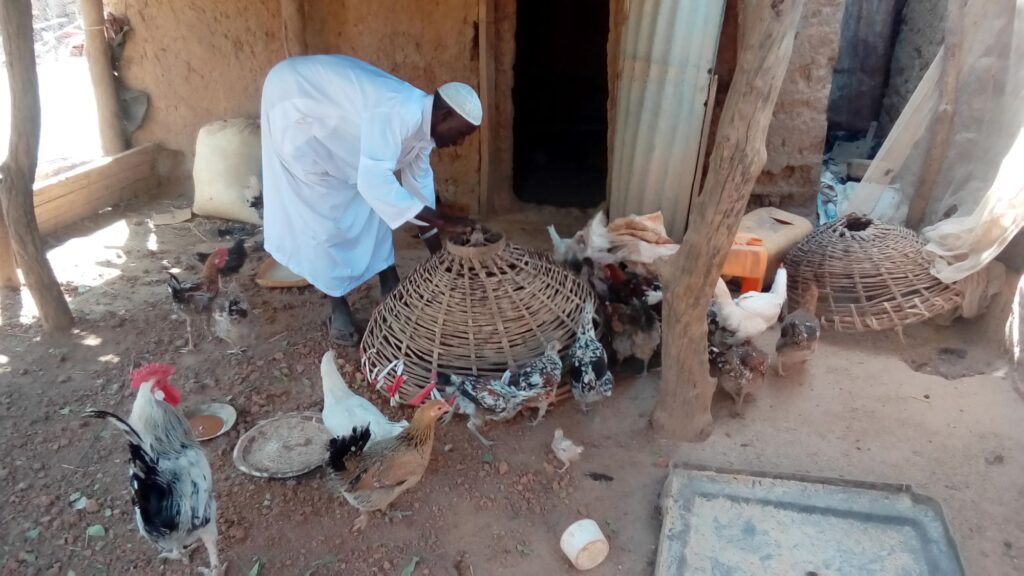How can we make rural sanitation safer and, in the process, increase agricultural yields? A new SIANI expert group will learn from experiences in Burkina Faso. The aim is to analyse earlier WaSH interventions that have addressed animal-related health risks and/or the recycling of nutrients and organic matter from human and animal waste.
Two problems often faced by people in rural Burkina Faso are low agricultural yields and risks from the poor management of human and animal excreta. But more integrated approaches to WaSH (Water Sanitation and Hygiene) could address both issues at the same time. In innovative projects in Burkina Faso, households have learned about livestock-related risks and trained on how to safely manage both human and animal waste to ensure that the local environment is not polluted. The waste can instead be used as fertilizer to improve soil quality.
These experiences are now analyzed by the newly formed expert group A One Health approach to WaSH in Burkina Faso – building a community of practice for integrating zoonoses, agricultural production and environmental protection in WaSH interventions. In 2024, they will collaborate with SIANI to generate new knowledge about the connections between water, sanitation and hygiene (WaSH) and the One Health approach that simultaneously considers human, animal and environmental health.
The project is led by Abdoulaye Pedehombga from the Agency for Training, Research, and Expertise in Health for Africa (AFRICSanté) and we asked him to describe it in more detail.
What is your project about?
We focus on two aspects of WaSH that often tend to be overlooked.
One is the close connection between humans and animals. Many WaSH initiatives fail to consider risks like water pollution from animal waste and zoonotic diseases that are spread from animals to humans.
The other aspect is the need to understand the potential value of waste, for example as fertilizer. WaSH initiatives should focus more on the safe reuse of local wastes including human and animal excreta since this can improve agricultural productivity and environmental health.
Who are the members of the expert group?
We are a broad range of stakeholders in Burkina Faso from different backgrounds. The work is coordinated by me, Abdoulaye Pedehombga. I am trained as a nurse and hold a master’s degree in food security and nutrition. I have a strong background in monitoring nutrition and WaSH projects.
What type of change can be achieved through your project?
We want to raise awareness of the role of animals in WaSH projects. It is important to educate people about risks and to avoid water contamination. But people should also understand that it is possible to recover nutrients, organic matter and water from local wastes and use it to increase agricultural productivity and environmental health. The desired change is to the see these aspects integrated more widely into WaSH interventions in Burkina Faso.
Which activities do you plan?
First, we want to learn more about the experiences of tackling animal-related risks as well as the recycling of human and animal excreta. There are important lessons from projects, policy and research in Burkina Faso. We will look for integrated WaSH initiatives that have already been carried out and conduct interviews to learn from them. In addition, we plan a literature review to summarize research.
Furthermore, we will conduct interviews to identify constraints and risks as well as opportunities so that we understand the needs of different actors. Based on this, we will produce communication products and ensure that the results are shared.
Why is this important?
Because of the scale of problems with WaSH and food insecurity in Burkina Faso, especially among women and children. In rural Burkina only 17 per cent of the population have access to improved sanitation; 36 per cent either share or have non-hygienic latrines and 47 per cent practice open defecation. In the 2023 World Hunger Index, Burkina Faso ranked 97 out of 125 countries, with 16 per cent of the population affected by undernourishment.
Nearly 75 per cent of Burkina Faso’s population live in rural areas where animal husbandry is important for food and nutrition. But animals are often kept close to or inside homes which can pose health risks, especially for small children exposed to pathogens in livestock excreta.
WHO’s guidelines on Sanitation and Health encourages the integration of animal-related risks in sanitation programming. Regarding reuse, Burkina Faso’s National Wastewater and Excreta Sanitation Program emphasizes increased reuse of faecal sludge and wastewater as one of the objectives. We hope that the expert group can accelerate the transformation towards more integrated WaSH policies and practices that consider human, animal and environmental health.
How can I learn more about this topic?
To learn more about the project, you can watch a video recording from SIANI’s Annual Meeting 2024.
The work of the expert group builds on approaches that have previously been applied in Burkina Faso, here is more information:
- The Clean and Green Rural Sanitation Framework was developed by the Stockholm Environment Institute and has been piloted in collaboration with Eau Vive International and WaterAid. A publication for download: Advancing the Clean and Green rural sanitation framework to improve health and agricultural production: Insights from Burkina Faso
- The SELEVER project, with AFRICSanté as a partner, has studied poultry husbandry in Burkina Faso and the associated health risks in areas with poor WaSH access. The article Poultry husbandry, WASH practices and child anthropometry in rural Burkina Faso offers policy recommendations on how to take animal risks into account when designing WaSH interventions.
- The Stockholm Environment Institute has also produced a webinar series on WaSH and One Health.
